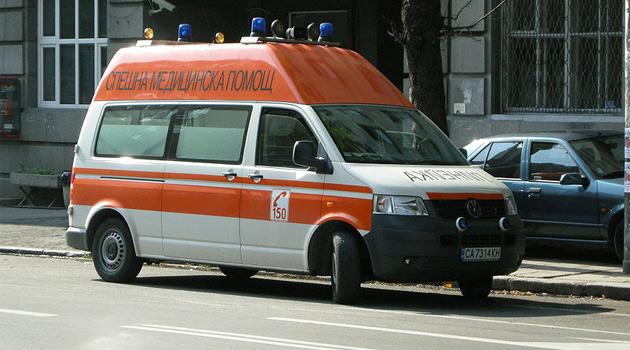Bulgaria: Attacks on ambulance crews launch new discussion about Romani integration

According to the Bulgarian Government, last year there were 227 attacks on ambulance crews, 175 of them perpetrated by Romani people. Ambulance crews there are said to fear driving to areas where Romani people live.
The conflict has now been exacerbated by Bulgarian Health Minister Petar Moskov, who directly called on medics not to visit locations where they don’t feel safe. The minister also declared that "those who choose to behave like animals deserve to be treated like them."
The opposition and several non-governmental organizations have called for the minister’s resignation. Many medics, on the other hand, have hung signs on their ambulances supporting Moskov.
According to a public opinion survey, the minister’s popularity has risen from 13 % to 27 % as a result of his remarks. In addition to the discussion of the safety of emergency responders, the number of attacks in Romani ghettos and settlements and the fate of the Health Minister, a new round of debate has also begun in Bulgaria regarding Romani integration which Reuters reports is "a new challenge to European efforts in include this largest ethnic minority into society."
Romani life expectancy shorter by 10 years
Reuters reports that "Bulgaria received a total of EUR 6.9 billion between 2007 and 2013 from EU funds for the integration of disadvantaged persons. That money was spent on a broad range of areas, including the Roma, providing financial aid for building up the education system and for housing. From 2014-2020, Bulgarians are slated to receive EUR 7.2 billion from the funds."
According to critics of the current state of affairs in Bulgarian society, however, the state has done practically nothing for Romani integration. Attacks on emergency medical technicians arriving in excluded localities are naturally a serious problem and can neither be excused or minimized, but they remind us of the other side of this issue: The conditions in which impoverished Romani people live in Bulgaria.
According to government estimates, 40 % of Roma in Bulgaria have no health insurance, and Romani life expectancy is 10 years less than the average for the majority population. Despite the extensive EU subsidies and political programs, the situation of the Roma has not changed for years.
The health of Romani people in the Czech Republic
Attacks on medics are also a problem in the Czech Republic, and emergency responders here have repeatedly lobbied to be given the legal status of a "public official". The number of serious attacks is not increasing here, but doctors working with ambulance crews encounter verbal attacks and insults almost daily.
Most of these attacks are from patients under the influence of alcohol or drugs, and when traveling to high-risk locations, ambulance crews request police assistance. From the resources publicly available, there is no mention of Romani people attacking medics or of emergency responders being afraid to visit Romani ghettos here in the Czech Republic.
What is remarkable, nevertheless, is a further comparison with the situation for Romani people in Bulgaria: Even though the Czech Republic is a significantly wealthier country, and even though the number of people at risk of poverty here is exponentially fewer, the inequality of health outcomes here is similar to that of Bulgaria. A 2014 Czech Health Ministry report on the health of the population of the Czech Republic, in a chapter entitled "Romani Health", states the following: "Socioeconomic determinants, environmental conditions, a comparatively worse lifestyle and its repercussions are the main causes of the adverse state of health of this population. Their comparatively worse state of health overall is characterized by the incidence of chronic diseases earlier in life, a higher rate of premature mortality (an average of 10-15 years earlier), and more frequent occurrence of cardiovascular disease, diabetes, and diseases of the digestive and respiratory tracts. Infant mortality is falling but still remains double that of the majority population."
Life expectancy that is 10-15 years shorter, twice the infant mortality rates. Another comparison arises: How and where has the integration of Romani people progressed in the Czech Republic during the last 25 years?